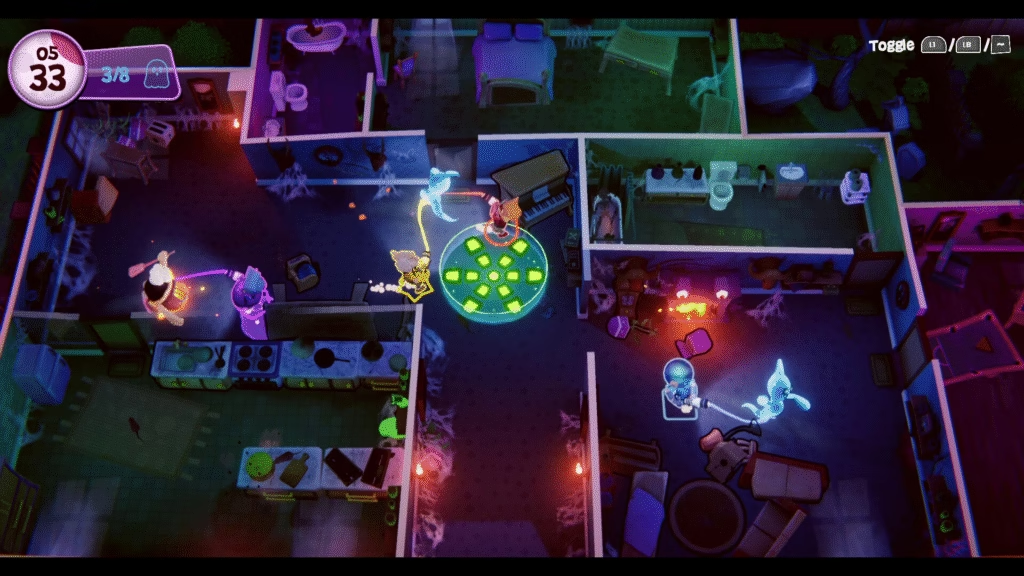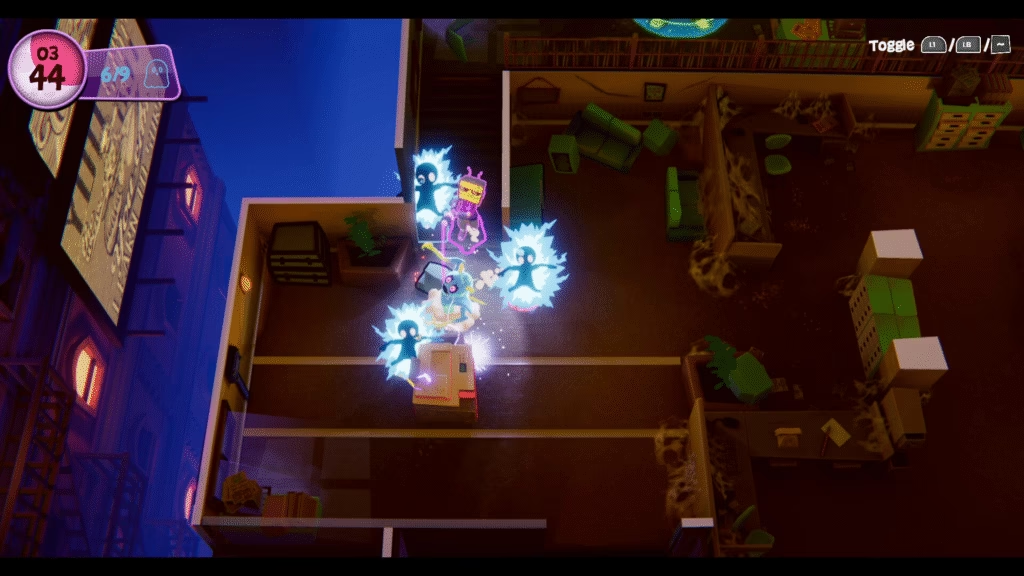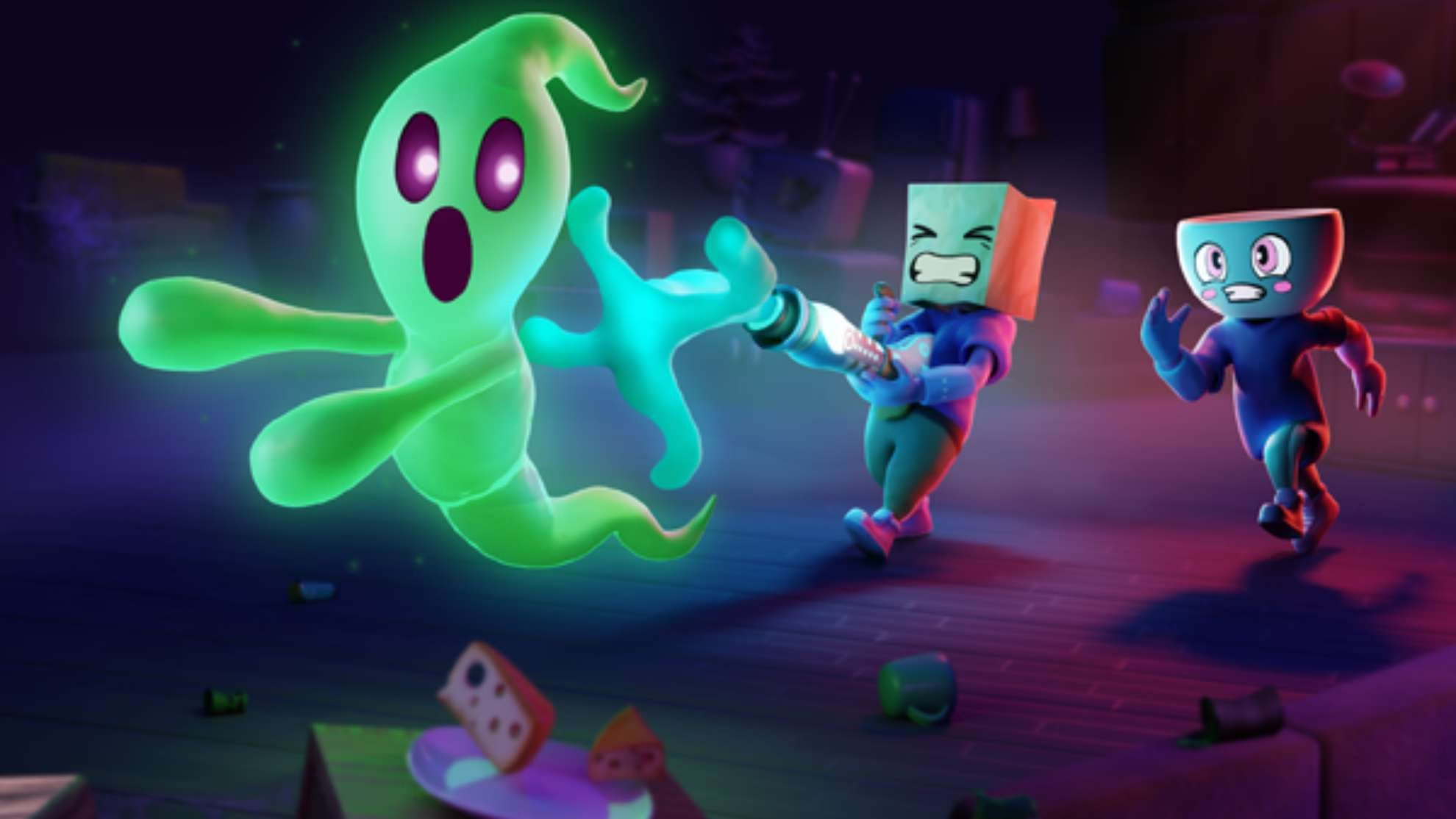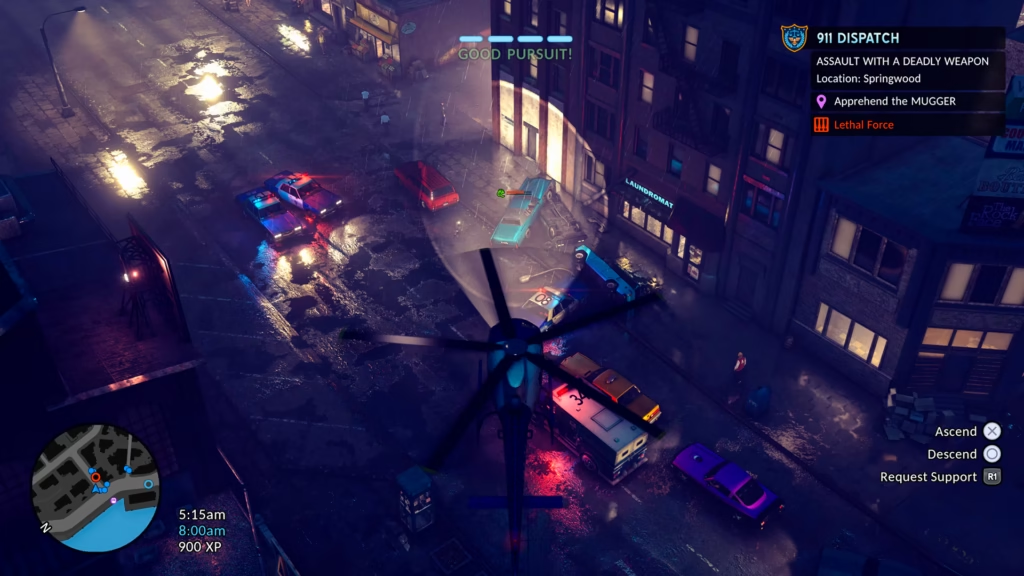“I was in Hong Kong on a 13-hour layover on my way back from SXSW Sydney, and was dead tired with nothing to do,” recalls Wala Interactive co-founder and director Megha Gupta. “So I switched on my laptop and started approaching random people and asking them to play my game, Spook-A-Boo. Of course, not everyone spoke English so it made things a bit awkward.” She goes on to describe the scene with copious details about the sort of strange looks and stares she received while trying to get strangers to try out an upcoming game.
“Finally, I saw four Asian guys, who had been sitting quietly for a while and looked quite bored; probably because they too had a long layover. I approached them and inquired whether they spoke English — something they took offence to,” she laughs, “After explaining myself, they were happy to test the game. A little while later, I noticed a camera person, a manager-type and possibly a member of security personnel standing up and heading towards us. I picked up stray words of Korean in their conversation (I can speak a bit) and that was when it dawned on me that my game was being tested by some celebrities, possibly K-pop stars!”
The game in question is described by its developers as a ‘physics-based couch co-op’ for between one and four players. “In a world filled with ghosts, you play as a ghost-hunting cadet. You travel to different worlds to find and capture the ghosts,” reads the blurb on the official website. Basically, think Overcooked meets Ghostbusters, and you’ll have some idea of what Spook-A-Boo is going to be like. The game is due to release on PC in the fourth quarter of this year, with console launch dates yet to be confirmed.
One of the most important aspects of the Spook-A-Boo journey so far, according to the Megha, has been the rigorous playtesting the game has undergone. “Playtesting is something that needs to be learned, particularly in India, where I’ve seen developers get people to test their game and collect feedback, but don’t really understand it,” she states, adding, “And then there’s the fact that developers often get people they know to test their games. This usually results in the ‘testers’ not saying what they actually think to their face. What helped us a great deal was that we got strangers to play our game.”
Elaborating on the point, Megha explains how she used to go to the canteens of random colleges, sit there for hours on end, and get students to try out the game. “Some would stare at me baffled as to why I was in their canteen asking them to play some game,” she continues, “And I got turned down by a lot of them, but the feedback I finally got was amazing — it was good to see that there were some parts that they enjoyed and then there were other parts that needed fixing.”
The backstory
But long before the first unofficial and/or impromptu playtest came an idea. That idea was to dive into the co-op genre for Wala Interactive’s first PC game. The studio’s previous outings, such as Roshambo, had been mobile-only affairs, but it was time to think bigger. And that’s how Spook-A-Boo came to be. “Despite being gamers in the conventional sense, my entire team loves playing couch co-op games, and as a result, we’ve played many such games together,” Megha says, “Considering how much fun we’d had playing these games, we decided that was the genre within which we’d build our first PC game. Plus, our research showed that co-op titles had accounted for a large proportion of the [2022-2023’s] Steam sales, around a third of them.”
The other major factor governing the choice of genre was capacity/capability. Despite accepting that co-op games are tricky to build and usually come with sky-high expectations, the Wala Interactive co-founder felt far more confident with this genre than most others. “We were willing to take on this challenge because technically, it’s easier for us to build a couch co-op game than an MMO or some generic PvP game. Those types of games require dedicated servers,” Megha notes, “And for small teams like ours, we can’t afford dedicated servers. Plus, even the development of those types of games takes a lot of time and energy, so we decided to stick to our strengths.”
After a brief SWOT analysis that confirmed the choice of couch co-op to be the right one for the Wala Interactive team, it was time to look at specifics. After all, the genre is pretty vast and features games that require players to work together on tasks as diverse as farming, cooking, shooting, escaping, building and so on. “One day, we were sitting around playing Luigi’s Mansion — while browsing through games — and began discussing the prospect of making a ghost-busting game in a frantic Overcooked style that has players rushing around in chaos to beat the timer,” reminisces Megha, “And then we imagined how our audience would play that game: Sitting together, having a good time, laughing out loud and so on.”

Calibrating and finetuning
An early version of the Spook-A-Boo prototype saw players (and in-game avatars) tasked with distinct roles: One was a ghost-buster, another was a priest who would exorcise possessed players and there was an engineer to fix things. A couple of playtests later, however, the team realised that the system got quite boring rather quickly. “Once a player had completed their tasks, they were bored waiting for the rest to do so. And so we decided to do away with specialised roles. That’s not the kind of chaos people wanted,” Megha admits, “So we altered our strategy and gave everyone all the ability to do everything — bust ghosts, exorcise possessed players, fix things and so on. So it was still very much a co-op game, but not a role-dependent one.”
Looking around at the host of co-op experiences on the market — ranging from the polished and focused experiences like It Takes Two or Split Fiction to more freeform stuff like Among Us and Don’t Starve Together — there’s room for plenty of niches in the genre. So what was the guiding principle when building Spook-A-Boo? “It’s about getting the fun factor right and balancing the chaos. For example, if you insert too much chaos, people may not understand what is happening and if there’s too little, they might get bored,” elaborates Megha, “Why did people love Overcooked so much? Because it balances all its ‘rush elements’ (there’s a main timer for the round and a mini timer for dishes to go out, but they work together seamlessly) and delivers it as managed chaos. That’s the sweet spot we’re aiming to hit.”
She goes on to point out how even if it’s a co-op title for up to four players, it needs to be balanced as a one-player, two-player and three-player title as well. “You have to play it as a single player, then two-player, then we sit as threes, and of course there’s the whole process of testing it at fests, colleges etc,” she adds, as if to underline once more the importance of playtesting with her game, and indeed any game.

Challenges and obstacles
Among the challenges Megha and her team have faced, she highlights the fact that ‘any physics-based game is a headache to code’. While the core game development is almost complete, the whole process of bringing everything together as a multiplayer experience remains. Which means all sorts of cutting, chopping and amending remains on the cards. And getting around all that is a major obstacle, particularly when your team comprises just 10 people.
Even putting together that squad, she notes, was a challenge. “Getting the right team to make a particular game is quite a task, because everybody has their own way of working and priorities when it comes to games,” she explains, “I wanted people who were truly passionate about games and were keen to build high-quality games. Talent is available, and you’ll find lots of talented people, but will they be committed for the duration of the development cycle and beyond? That’s the question I kept asking.”
The next issue is finances and their management. “When I started out many years ago, not a lot of people were doing social media marketing as it was still fairly new. So I told the team to focus on game development, and I would get the money for development and production,” she recalls. “During this time, I had a lot of major clients and so money was relatively good. But then in 2017, I had an accident in which my leg very nearly needed to be amputated. That affected my ability to work for around two years, resulting in a complete halt on the cash flow, and the company was disbanded after that.”
This time around and taking lessons from her experiences, Megha has thrown everything into the game development business (including her own money) with a single-minded goal of building games. “At the time, I had a decent portfolio that I could’ve used to get into another job, but I didn’t want just another job. I wanted to make games and felt that was my calling,” she admits. And so, with the support of her parents, Wala Interactive was up and running and on its way in the game development journey.
GDC and beyond
“When we started up, the plan was to build a prototype in three months because that was the extent of the budget we had. But everything got delayed by a month, so I had to dip into savings,” she says, “And when it was ready, we began approaching publishers. Sadly, we didn’t get one because it’s incredibly difficult to get funding in India since it appears investors and publishers don’t really trust Indian devs right now.” However, there were a couple of offers from smaller publishers who initially expressed interest, but backed out at a later point because they claimed to have changed their strategy and were no longer looking at co-op games.
And that’s when the interaction with British publisher Team17 took place. “We had a 20-minute call with the publisher and their scout, in which they told us what they liked about our game,” Megha says, “At the end of the day, they didn’t take us on, but the valuable feedback and the fact that publishers like Team17 were looking at us gave a major confidence boost that we were moving in the right direction.” That would inspire her to cobble together some more funds and take the presently-set-to-be-self-published Spook-A-Boo to GDC. That would be one of the game’s first brushes with a variety of international gamers, developers, publishers and journalists, and the Wala Interactive co-founder would bring those insights home with her to further streamline the game.
Most recently, Spook-A-Boo was among the games exhibited (along with a playable demo) at the Indie Game Utsav (IGU) in Mumbai on April 12 and 13. “As I’ve mentioned, I’ve spoken to so many publishers over the past couple of years (including the ones that attended IGU),” she says, “But it’s one thing when a solo developer reaches out to a publisher, it’s quite another when an entire community does so. It puts devs at a much greater advantage. And so, the opportunity for developers was really quite amazing.”
Spook-A-Boo is set to launch on PC later this year, and you can check out a playable demo of the game and wishlist it right here.


